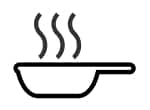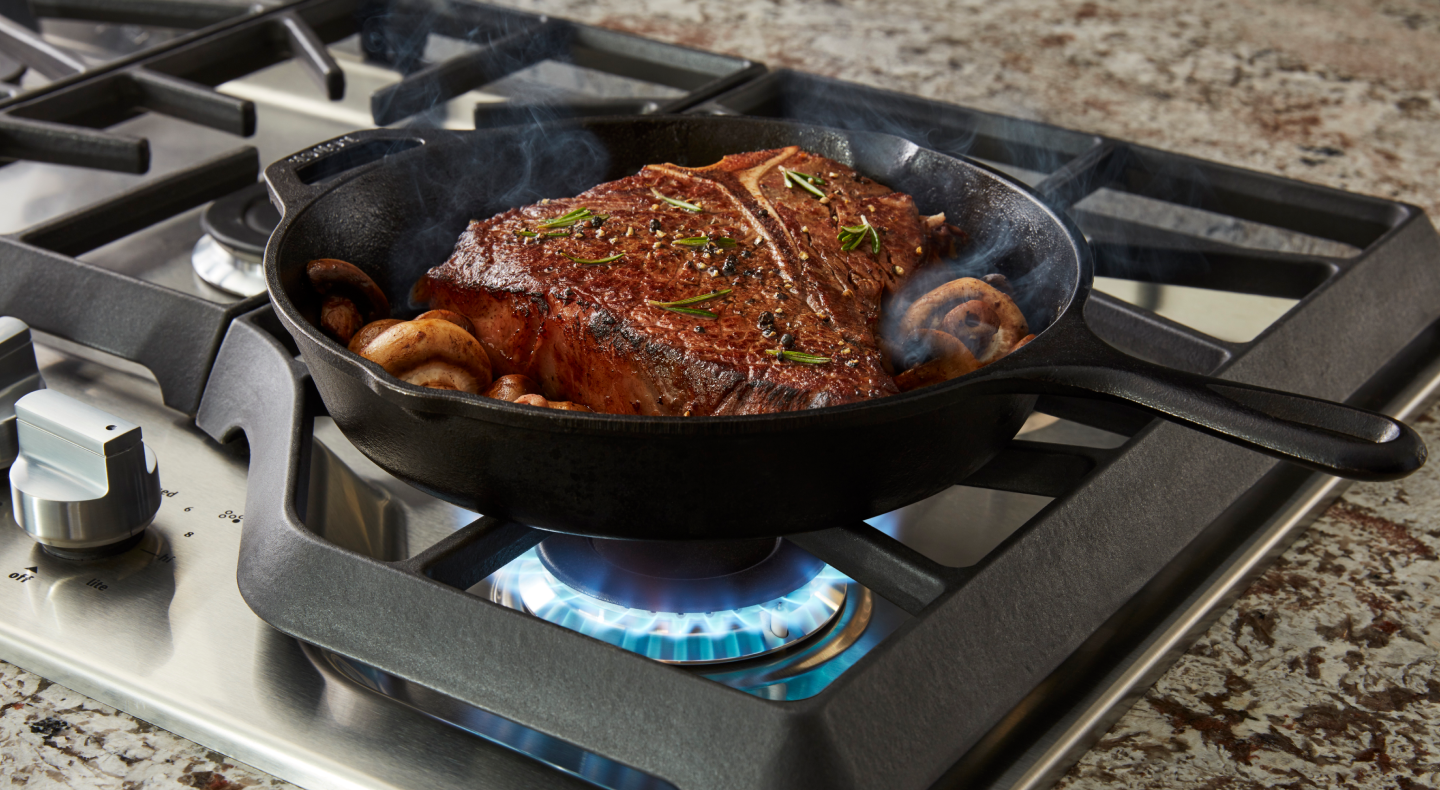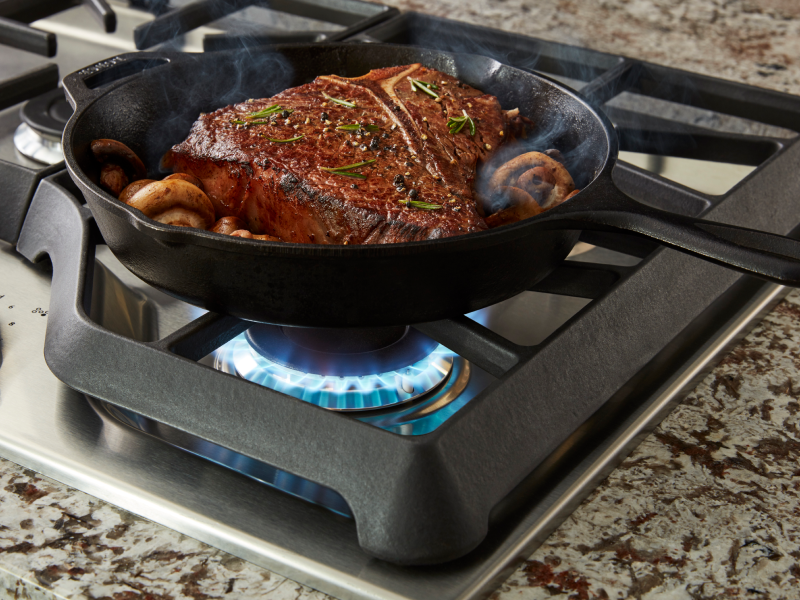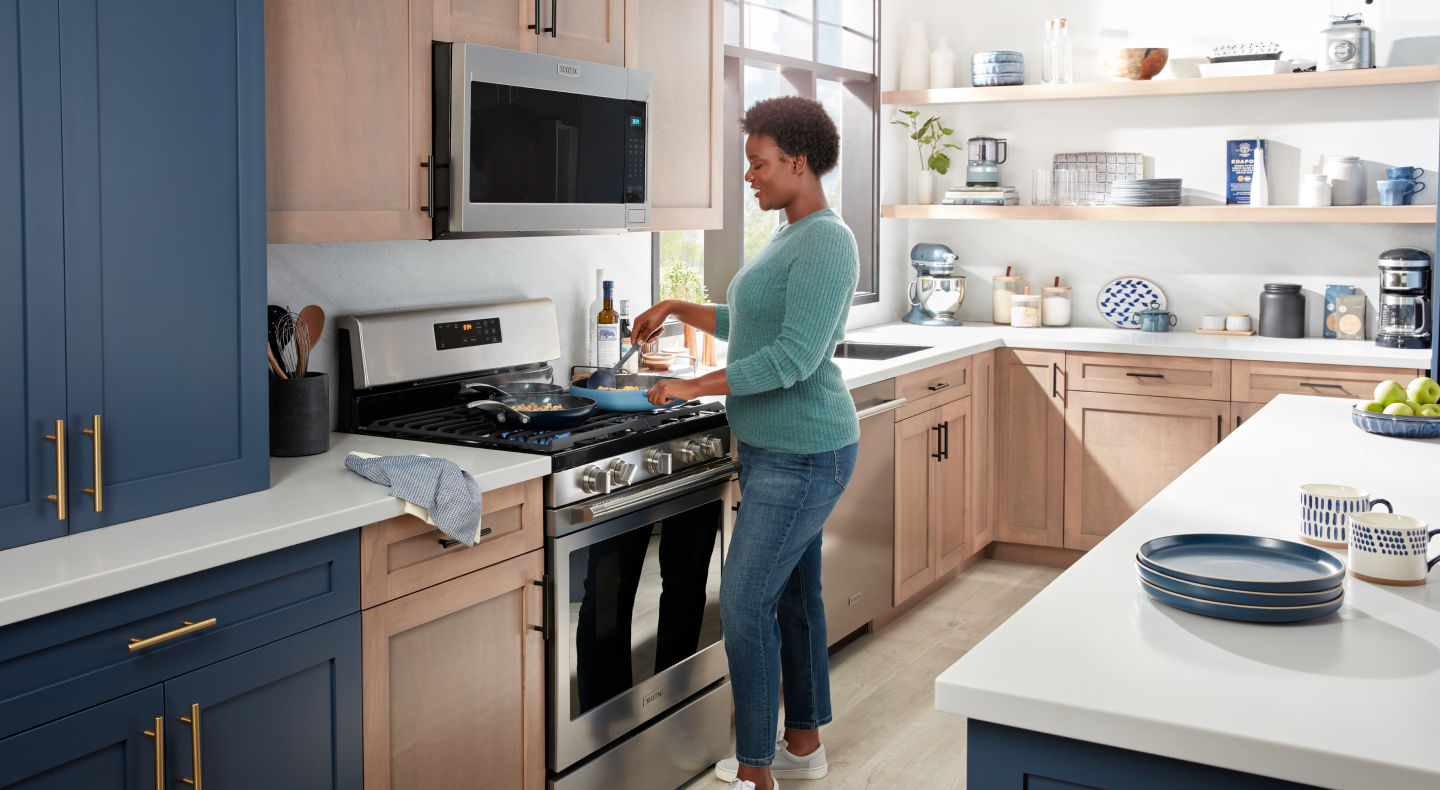
HOW TO SAUTÉ VEGETABLES
Sautéing vegetables is a quick way to make a healthy side dish to serve with your favorite entree. This versatile cooking method can be used with almost any vegetable or combination of veggies, like onions, peppers, carrots, broccoli, cauliflower, butternut squash and zucchini. It’s an easy way to prepare food, especially if you’re not sure what to do with the veggies in your fridge. This guide provides sautéing tips and a simple recipe to show you how to sauté vegetables.
WHAT DOES IT MEAN TO SAUTÉ?
Sauté means quickly cooking or browning food with a fat, like oil, over high heat in a pan with a wide, flat bottom. The term originates from the French word 'sauter,' meaning 'to jump,' resembling a chef tossing ingredients in a pan. You can use a frying pan, although a sauté pan has taller, vertical sides, making it easier to stir and flip food.
A SIMPLE RECIPE FOR SAUTÉING VEGGIES
Be sure to keep a close eye on your veggies as you sauté because they’ll be cooking quickly over high heat. When sautéing, you want a tender yet crisp texture as the food browns and some vegetables cook faster than others. Keep in mind that your vegetables will continue to cook after you remove them from the heat.
TOOLS
Sauté pan or frying pan
Knife
Cutting board
Cooking spoon or spatula
- Optional: vegetable peeler
- Stovetop like these Maytag® cooktops
INGREDIENTS
Vegetables
Olive oil or cooking oil
Salt and pepper, for taste
Optional: other seasonings, fresh herbs and spices
YIELDS
- 4 servings
PREP TIME
5 minutes
COOK TIME
- 5 minutes
TOTAL TIME
10 minutes

STEP 1: WASH AND CUT VEGGIES
Prepare your veggies by washing and patting them dry. Peel and trim the vegetables, if necessary, and cut them into uniform-sized pieces for even cooking.

STEP 2: PREHEAT THE PAN
Use a sauté pan or frying pan that’s wide enough to cook your veggies in a single layer. Add olive oil or cooking oil to your pan and heat it on medium-high until it’s hot.

STEP 3: SAUTÉ THE VEGGIES
Place your veggies evenly at the bottom of your pan without overcrowding. Occasionally stir your vegetables until they reach a crisp-tender texture. Remove the pan from the cooktop to avoid overcooking. Cooking time may vary depending on the type of vegetables you use.

STEP 4: ADD SEASONINGS
Season your veggies with salt and pepper. Add additional seasonings, fresh herbs and spices as desired to enhance the flavor.
SHOP MAYTAG® COOKTOPS FOR SAUTÉING VEGGIES


TIPS FOR SAUTÉING MUSHROOMS
You can sauté a variety of mushrooms such as button, cremini, portobello or shiitake. Clean your mushrooms gently with a paper towel and make sure they’re dry before sautéing to help make browning easier. It’s best not to soak mushrooms or hold them under running water. Add them to your pan in a single layer and avoid overcrowding.
TIPS FOR SAUTÉING SPINACH
Try to use fresh spinach leaves, as frozen spinach tends to break into small pieces. There’s no need to chop your spinach unless you have larger leaves, then you’ll want to cut off the woody stems. Simply wash the spinach, add the damp greens to a pan with oil and stir occasionally until the leaves are wilted.
TIPS FOR SAUTÉING ONIONS AND PEPPERS
If you’re sautéing onions and peppers together, cut them into roughly matching sizes and cook them in oil for about seven minutes or until tender. For a sweeter, less pungent onion flavor, add the onions to the pan first—to give them a chance to cook a bit longer—and then add the peppers. Pay close attention to the peppers as they can easily turn mushy.
CAN YOU SAUTÉ WITH OLIVE OIL?
With its medium to medium-high smoke point, you can use olive oil to sauté veggies. You can also substitute other oils with similar smoke points like vegetable, sunflower, safflower, canola and refined coconut oil. Butter adds richness but can burn easily, so use lower heat or blend it with oil to help withstand higher temps.
DISCOVER MAYTAG® RANGES
When it comes to dependable results in the kitchen, your range plays an integral role. Select Maytag® ranges have performance features like Power Preheat and Power™ Burners so you can bake, sear and saute with ease. Explore Maytag® gas and electric ranges to find the right fit and features for your kitchen.


